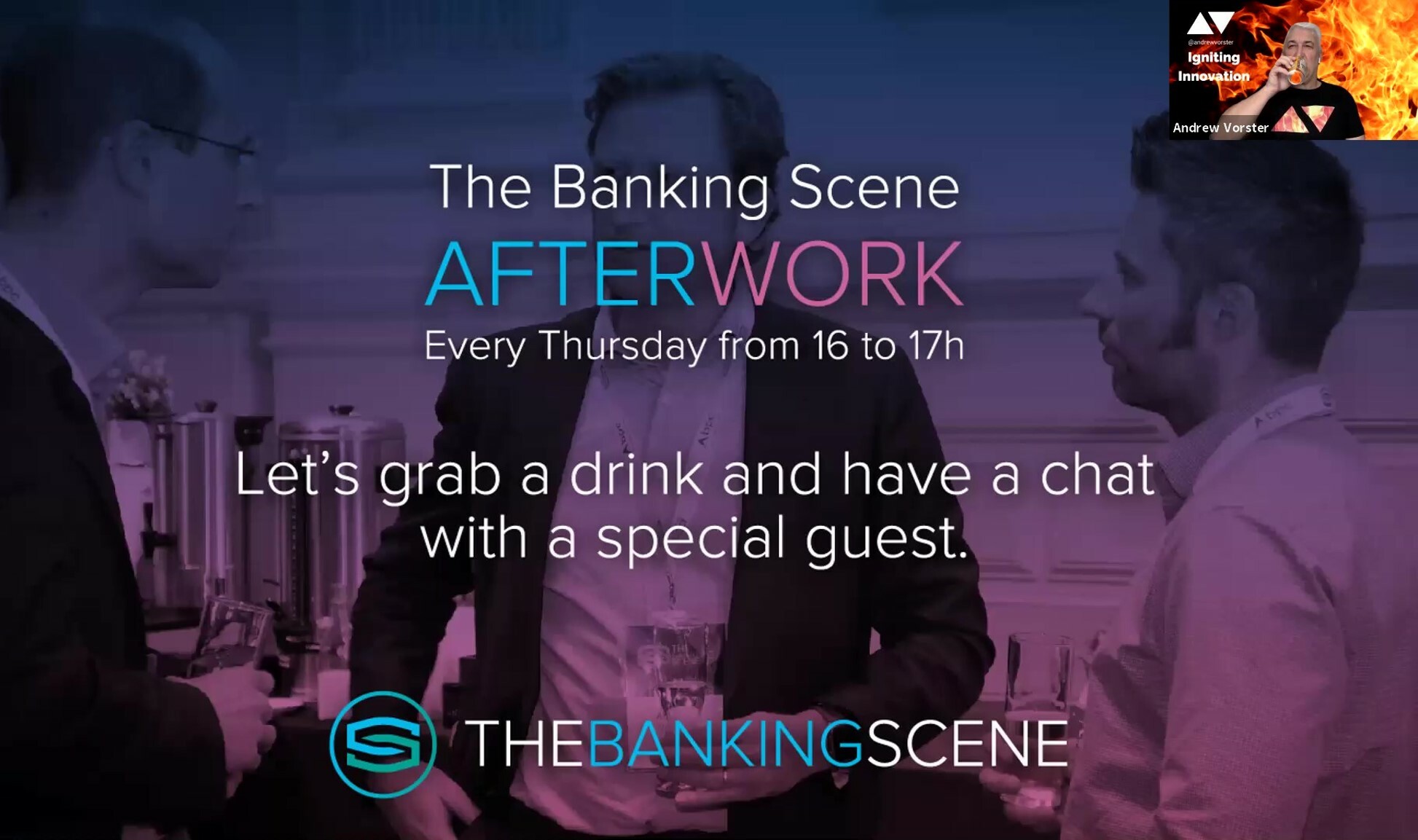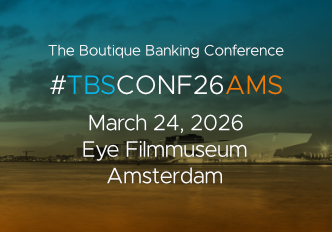
Insights & Opinions
Avoiding the Missed Opportunities during the biggest POC in history
Mon, 20 Apr 2020

On April 16 we kicked off the first edition of The Banking Scene Afterwork, a weekly virtual meeting that we will continue to organise, at least already until June 25 (when we close the first series with a phygital webinar with Chris Skinner). For our first edition, a try-out, we invited Andrew Vorster to ignite a dialogue on “Avoiding the Missed Opportunities”.
20 people attended this one-hour virtual round table to share ideas, to get inspired and to create new connections for a better (financial) future. Perhaps an hour was rather short, but I heard from many that the open setup of the Afterwork facilitated more detailed interaction and dialogue afterwards, as you would expect from a real, physical, Afterwork.

This article summarises what has been said during this first session. These are just the headlines, not all the interesting details and real examples that were shared. If you like to know more about future topics, make sure to attend The Banking Scene Afterwork as well!
#missedopportunities
Uncertain time create uncertain opportunities. How to transform them into a real opportunity? How to get the organisation behind these new, value-creating ideas already today, instead of coming back to them after the crisis?
Andrew introduced the topic by explaining that in his past career, he worked in the innovation department at the big multinational. As a manager of the team, he was confronted with the lack of tools and processes to organise the democratisation of innovation within the organisation.
Horizon scanning was an almost daily routine to stimulate the innovation pipeline and to find the opportunities and tools relevant to create an innovative corporate culture.
One of the bottlenecks was the funnel process to determine which ideas to develop. In each step, the list of innovative ideas got shorter, with each time several meetings to decide how the shortlist would look like. The result was mostly a waste of time and disengagement of the people involved. After 3 months already, #missedopportunity was a trending topic: the decision process of selecting the right idea to develop was so long that they missed the opportunity.
Over and over again some start-up or a competitor already did it the moment that went through the whole funnel process.
COVID-19 makes this discussion more relevant than ever
First of all: COVID-19 is the biggest remote working Proof Of Concept… ever! Everyone needs to rethink how they work, shop and live. From one day to the next, we are all living in a completely new context, with new needs and different problems to manage and also with great new ideas to anticipate those needs and problems.
Andrew believes that many organisations and people will miss these opportunities because they are so focused on getting back to the way it was. They will forget the opportunities for improved products, processes, procedures… it will be a #missedopportunity.
Others will pick up on those ideas, and they will benefit from it in the future, in his opinion, because we will never go back to how it was. Times are changing and they are changing for good.
“Because this was the way we used to do it”
Fighting the missed opportunities is also making people understand that “the way we used to do it, will not come back”. That is not just the case for employees of banks, but also often the expectation of customers. A good example are the banks’ branches: banks don’t want to keep them open, customers do. Today these customers get a natural push to digital, today they get used to digital, they better understand the advantages.
This is a huge opportunity for banks, the time is right to rethink the way to communicate with consumers. One of the frustrations in the group was that too many times banks limit the solution to front-end only. Banks should better adapt, in the whole end-to-end process. That is the only way they can become truly digital and they can end up with solutions that are fit for the new reality.
Ideally, banks adapt quickly, not just in increased flexibility in the payment terms for mortgages and loans, but also in their offering of daily banking and other products. Today, except for remote working, not one big financial institution seemed to quickly react to a changing market (no, changing the limit for contactless transactions is not an innovation, that is simply an operational improvement).
Fintechs rapidly responded, challenger Starling quickly developed a new card, specifically tailored to a COVID-19 context. It was a card that the elderly could give to a third party to shop for them, a prepaid card linked to your debit account, with a separate PIN. All this was developed in a few days.
You need to be able to demonstrate, in a very short timeframe, that the business case is there.
Big banks? They do not respond to the new reality with technology solutions right now. They risk being faced with #missedopportunities in the future.
Think twice, not just about today, but already about tomorrow as well
That brings us to a remark of Adrien Kirschfink, Managing Director Accenture Belux, who responded that it is not enough to look at today, to avoid the missed opportunities. As far as possible, organisations should already be able to respond in an agile way on what’s next. What are services that we can offer, and are the opportunities that we can grab from this crisis going forward?
The human connection will remain vital in the more emotional, the more complex services of financial institutions. The more administrative, transactional services will be further digitized, simply because consumers got used to them.
Looking at the end-to-end process of services that are currently offered remotely is the only way forward. A digital front-end is only a minor step towards a new operational reality. The winners of tomorrow are the players that are accelerating their digital roadmap today to adapt to this new world. That is the only way to be fully prepared for the future.
Not looking at the end-to-end process today would be a big #missedopportunity.
How to cope with this situation in an innovation department?
The general rule of avoiding missed opportunities is to socialise what’s happening, both inside and outside the organisation. Create awareness: everyone in the organisation, from top of the hierarchy to the bottom, all need to understand how the innovation process works. To avoid the missed opportunity, everyone needs to be aware of the right processes, the right procedures, the right resources.
Luckily today, the banking industry is feeling an explicit need for change and many are acting upon the new situation. This also means that the role of innovation is changing. Innovation is no longer someone implementing new solutions. It is increasingly more a change manager that facilitates an organisation to improve and to anticipate a new reality.
In a way, this also means that avoiding the #missedopportunity is no longer a personal frustration. If innovation is properly implemented, the #missedopportunity become a group thing. Organisations that have this mindset in their DNA will be the winners of tomorrow. This is valid in any industry by the way, not only the banking industry.
On April 23, we’ll talk with Guy Claes about our experiences with remote working, how much we miss our colleagues and human interaction and the role of offices and branches in the future. If you like to join, make sure you register here.


